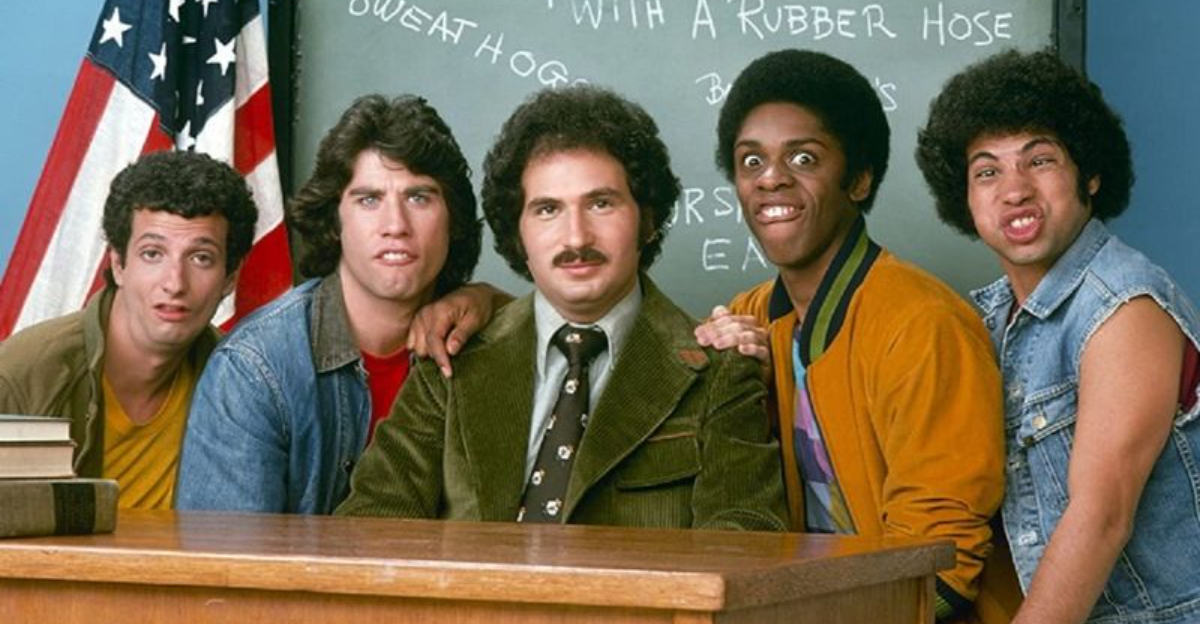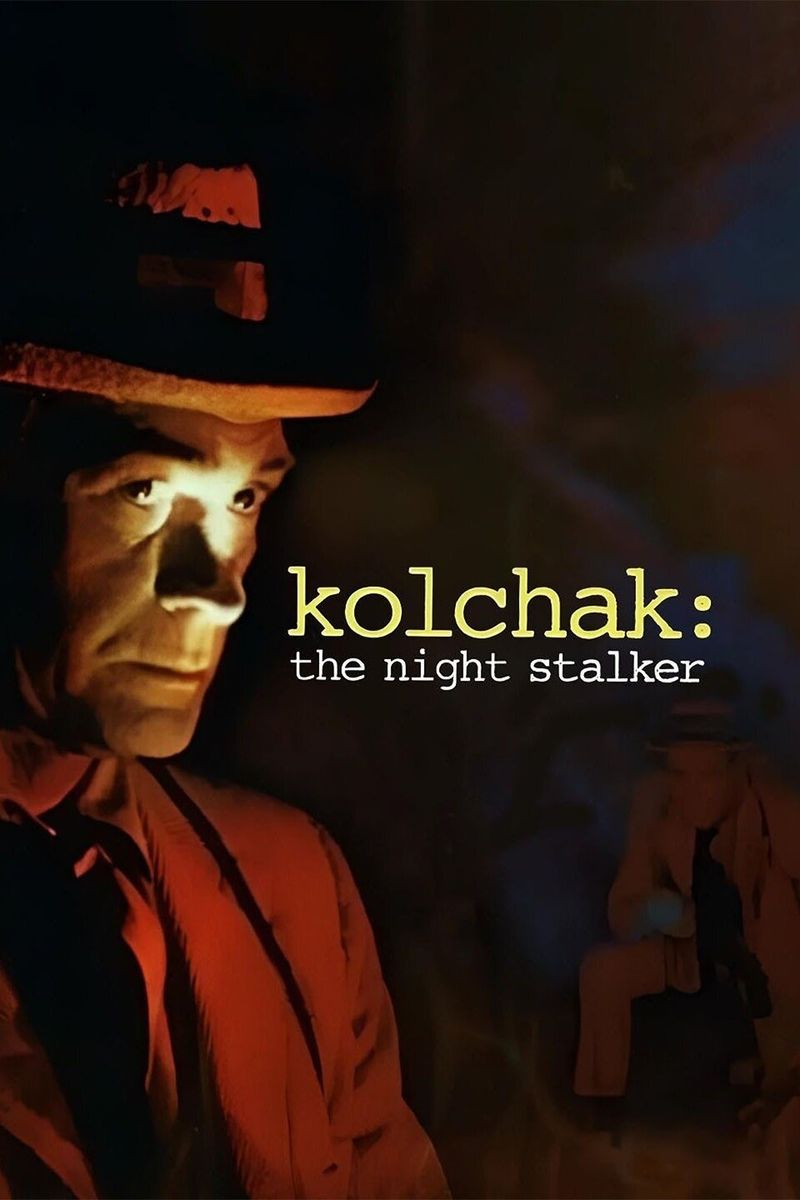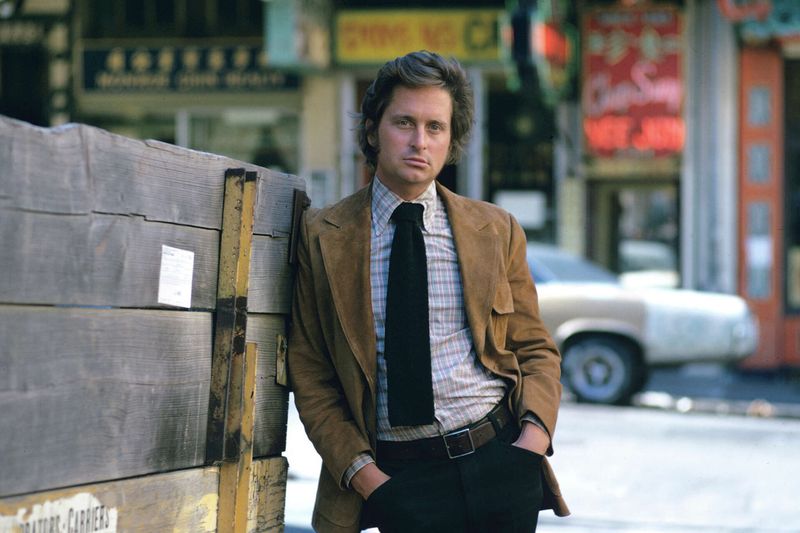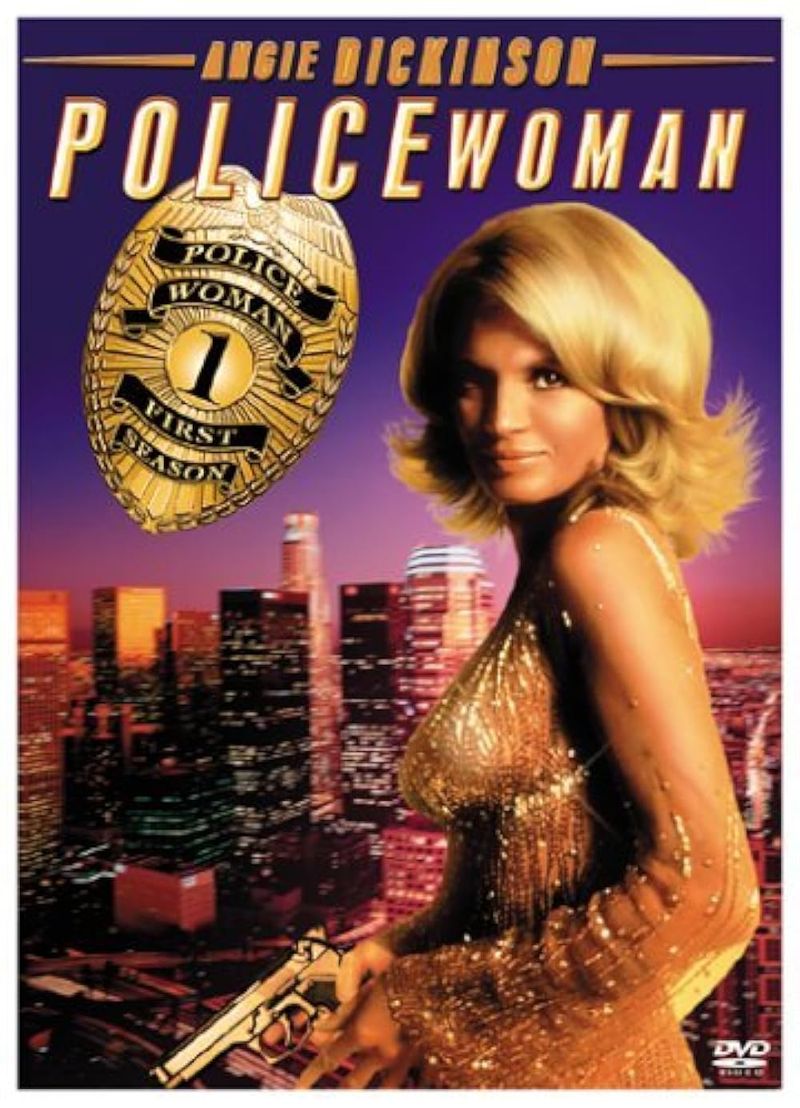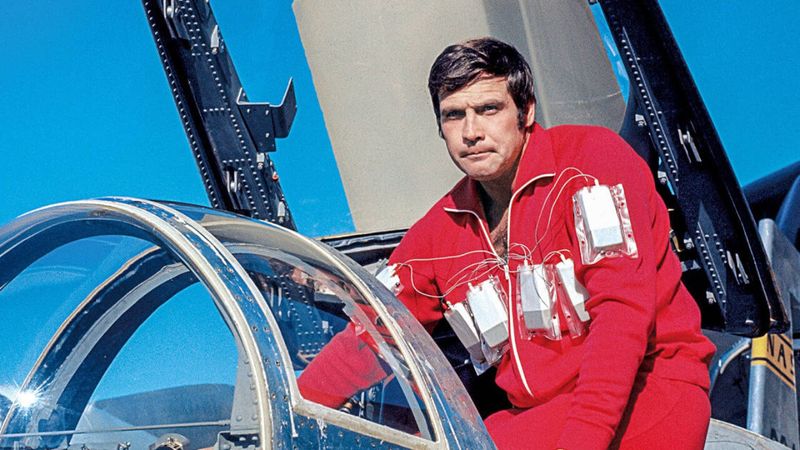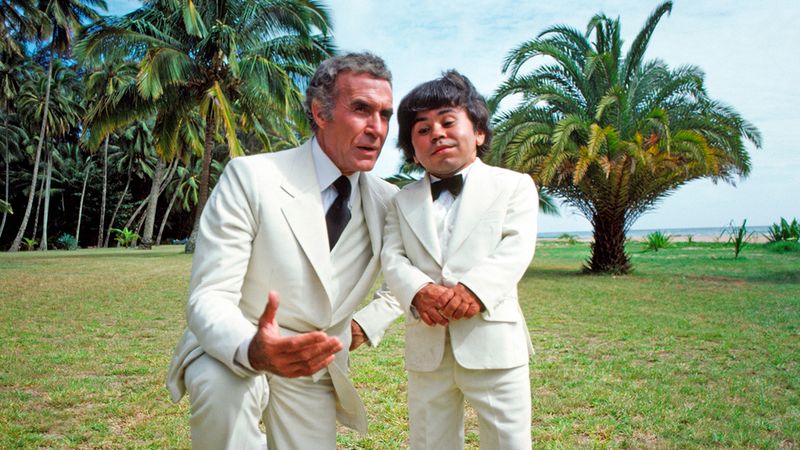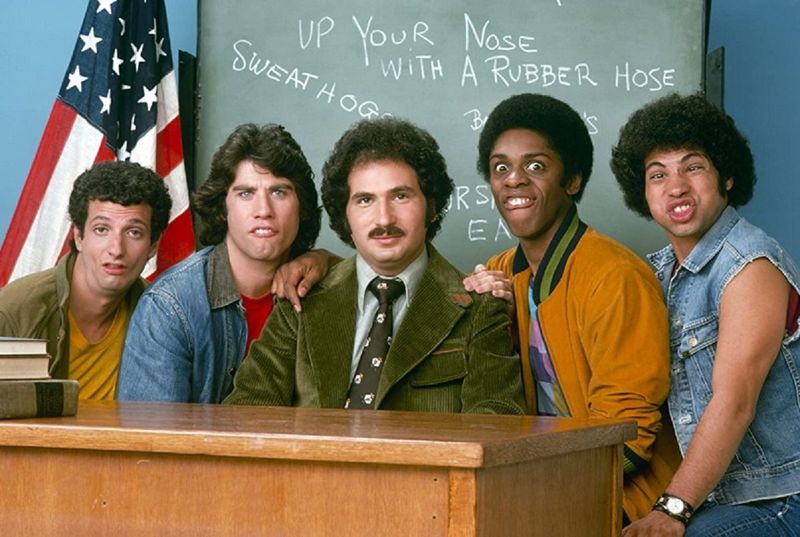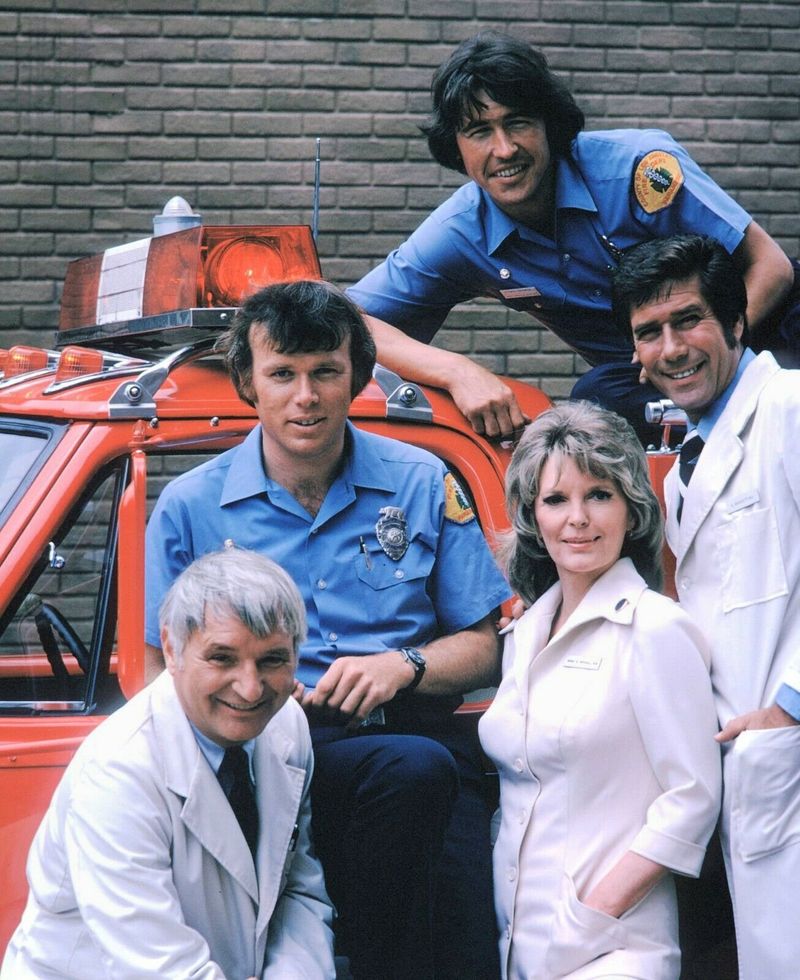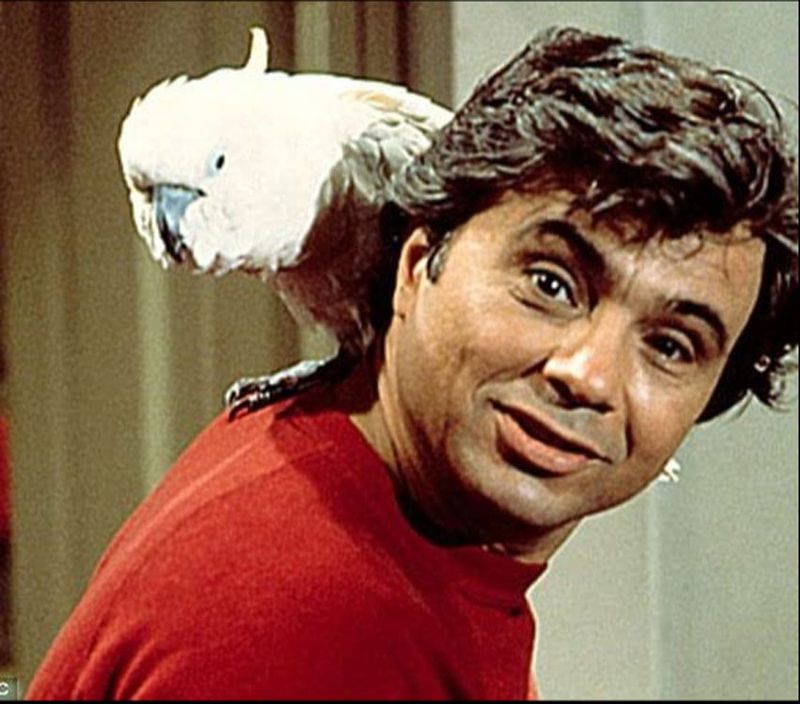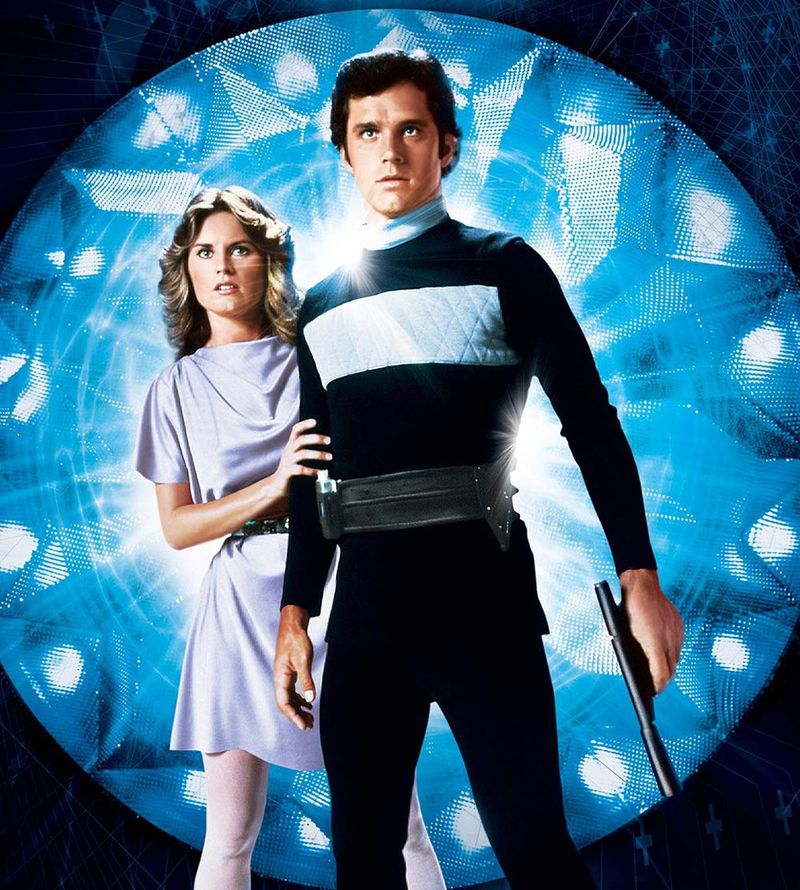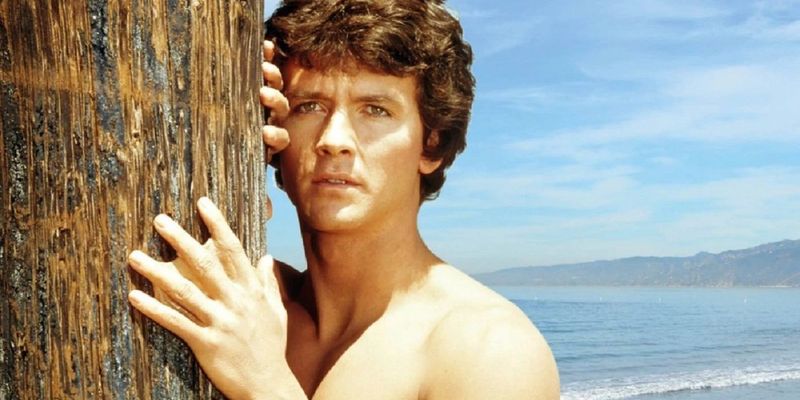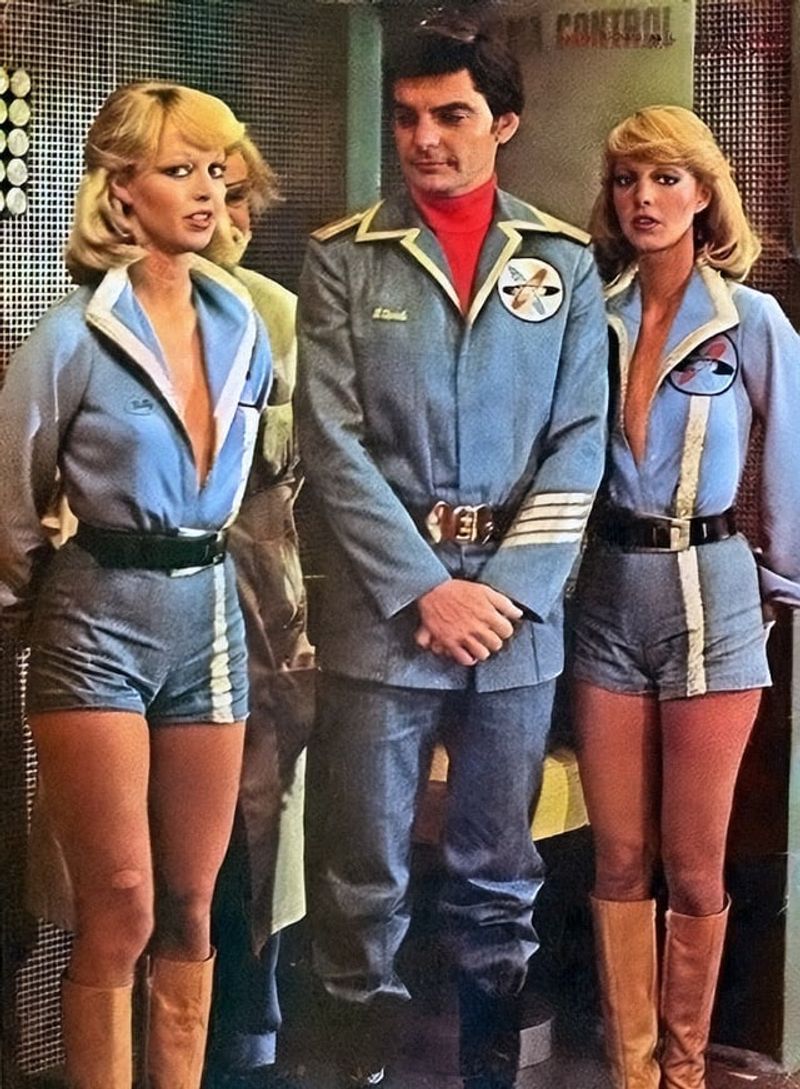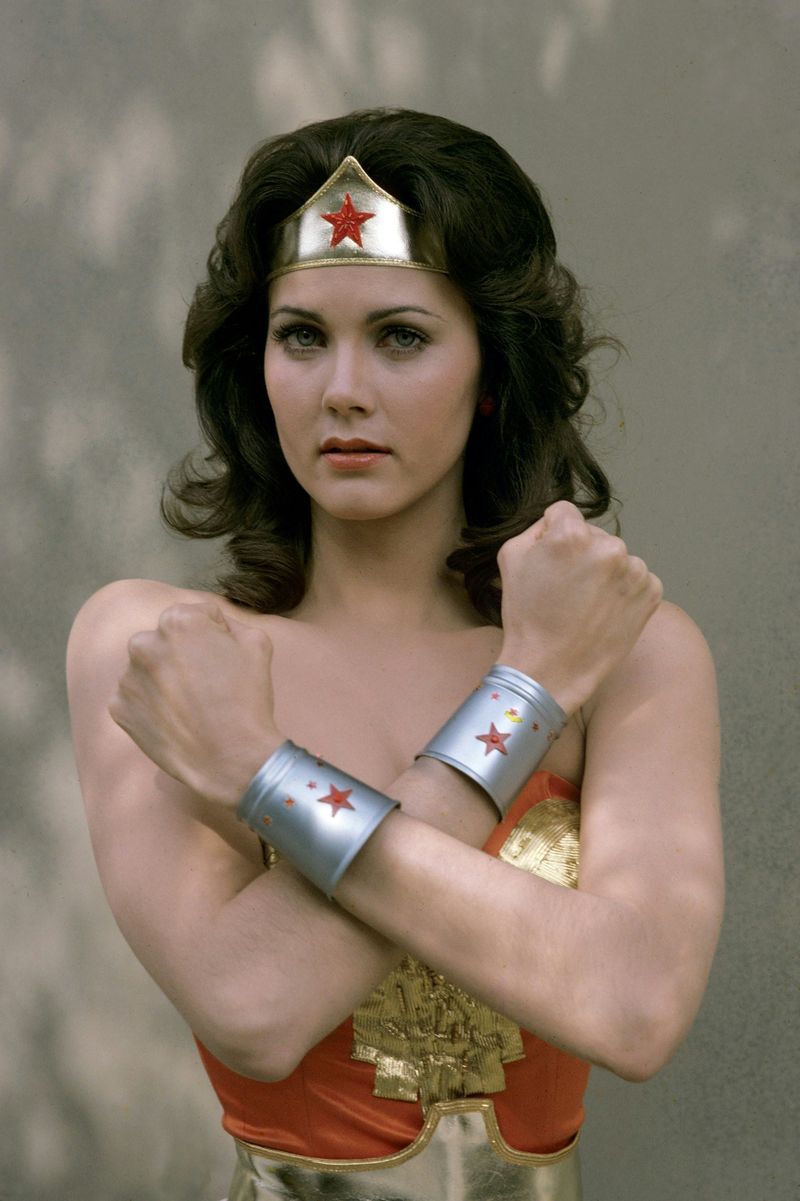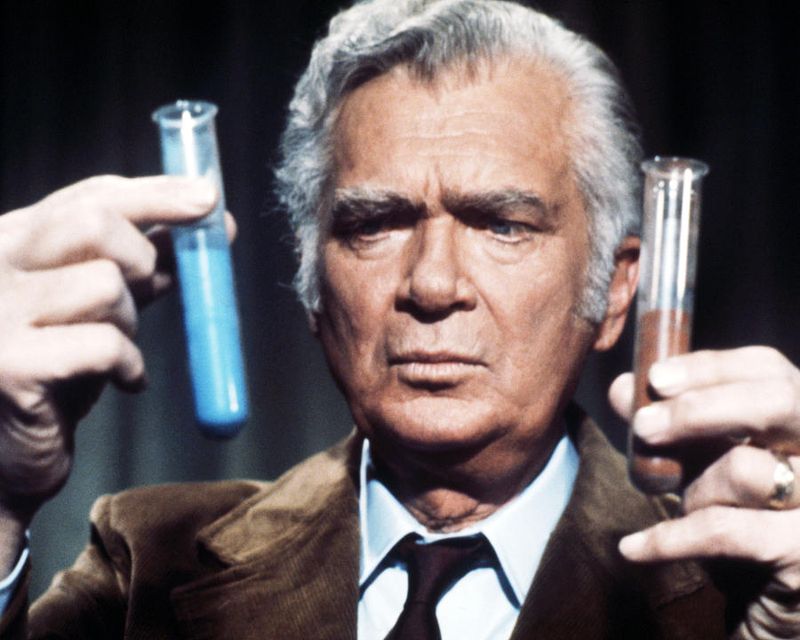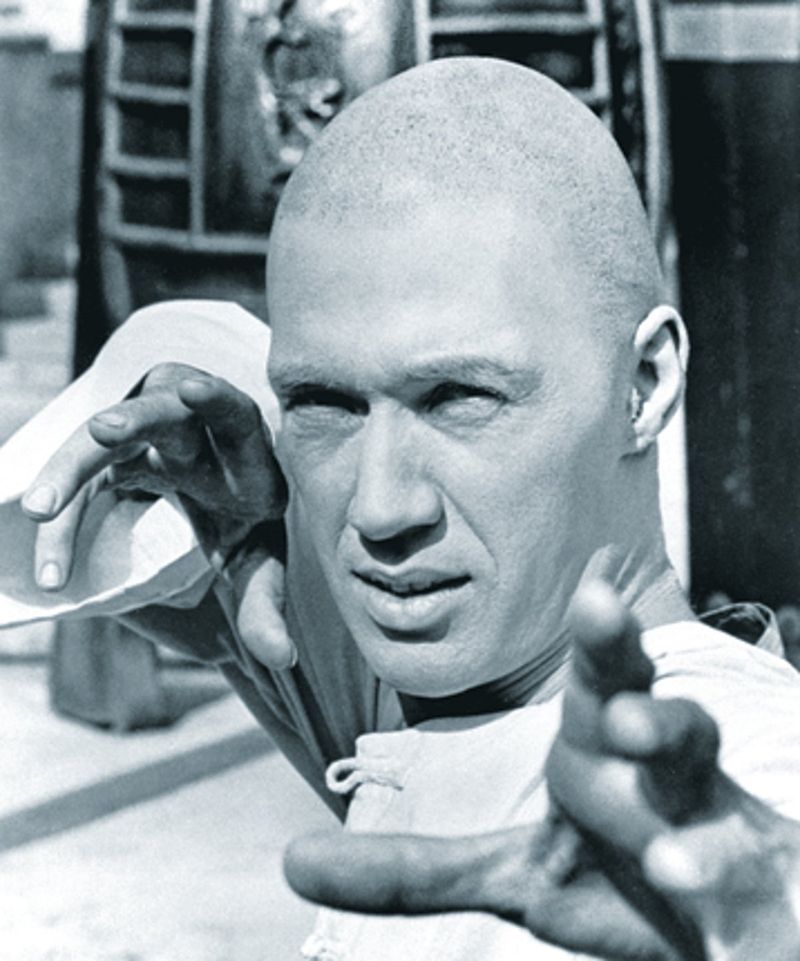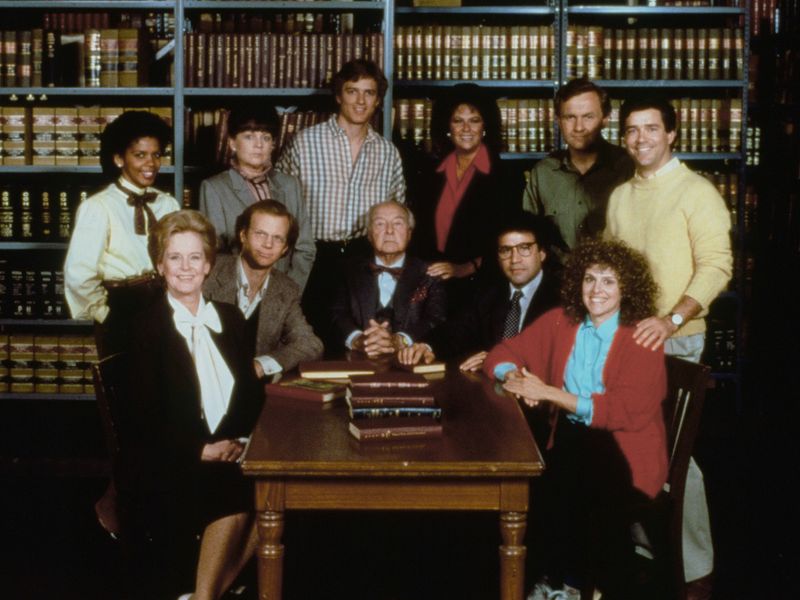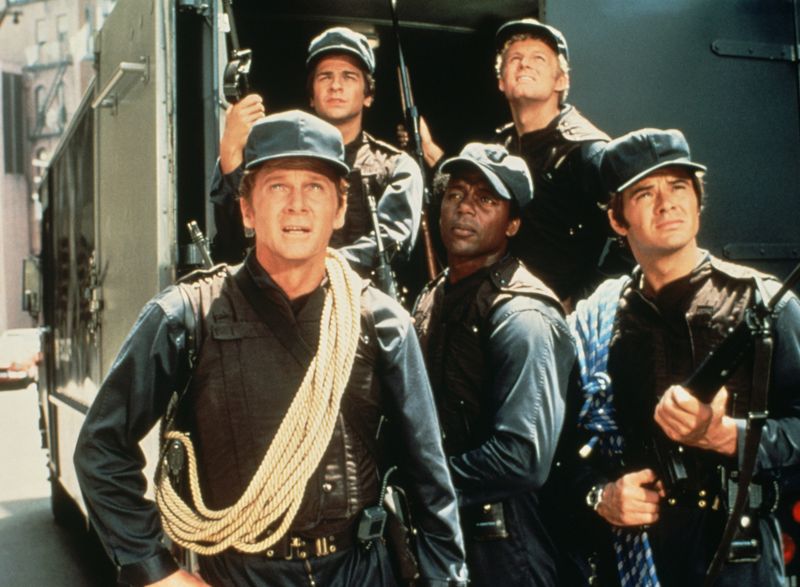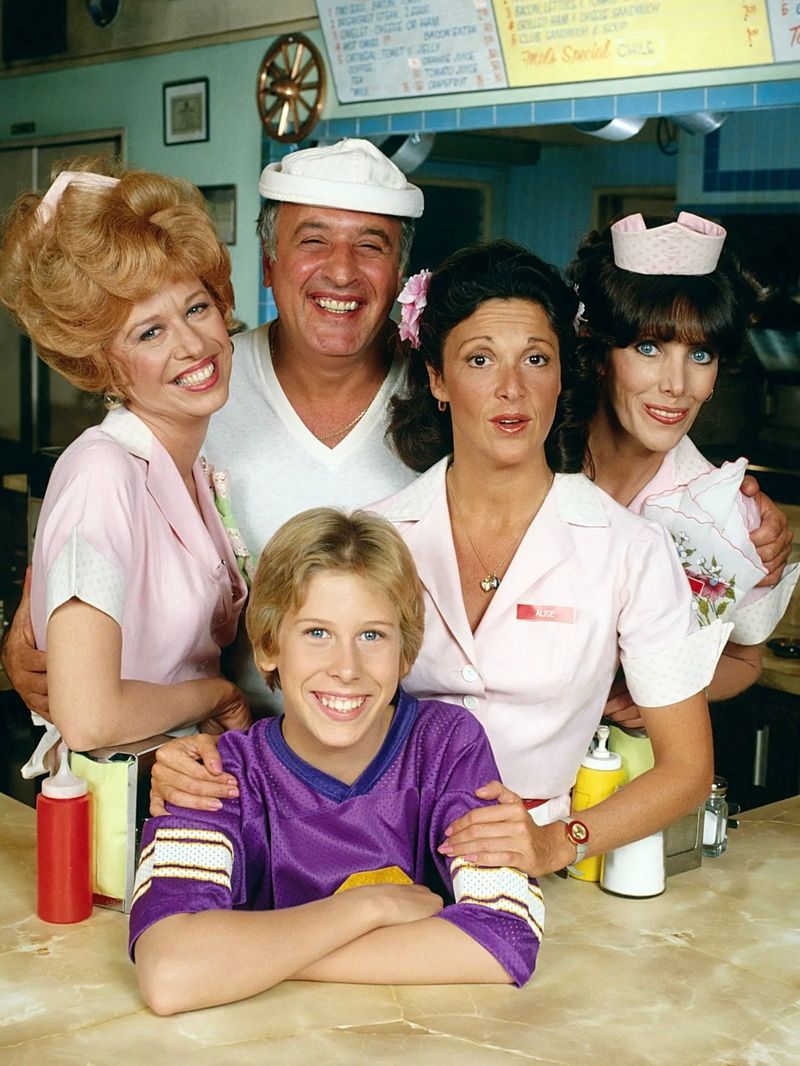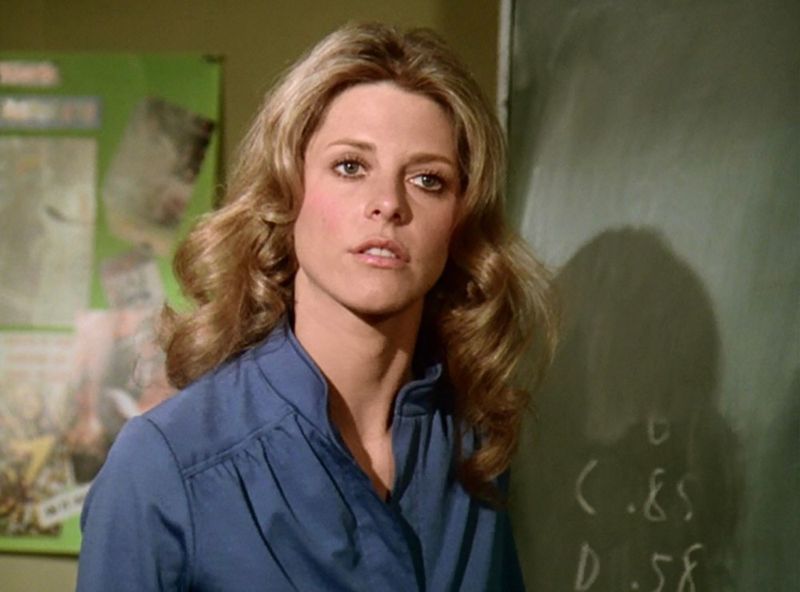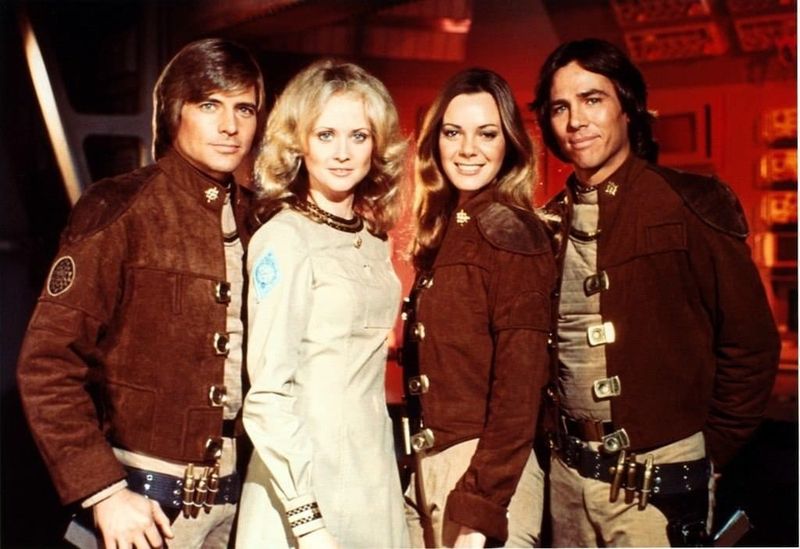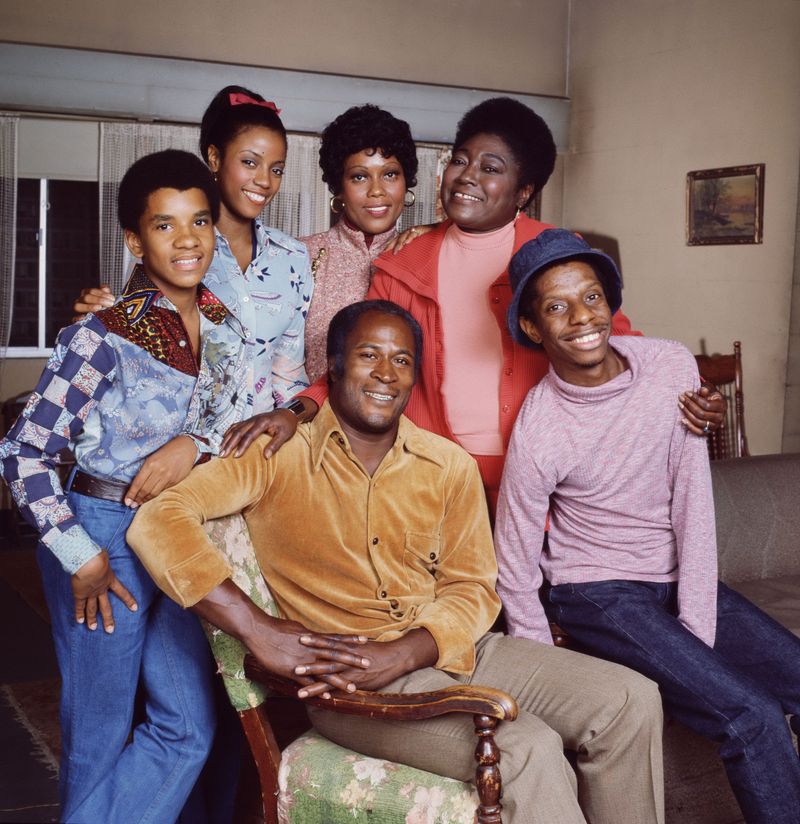The 1970s was a golden era for television, producing shows that not only captivated audiences of their time but also left an indelible mark on future generations. Although some of these shows have faded from mainstream memory, their influence continues to reverberate through modern pop culture.
In this blog post, we explore 20 TV shows from the 1970s that, despite being somewhat forgotten, still have a lasting impact on today’s entertainment landscape.
1. Kolchak: The Night Stalker (1974-1975)
Kolchak: The Night Stalker introduced viewers to the thrilling world of paranormal investigation. With its monster-of-the-week formula, each episode brought new chills and excitement. Kolchak’s adventures crafted a blueprint for future supernatural series. The show’s quirky protagonist, Carl Kolchak, was an investigative reporter who delved into the eerie and unexplained.
His relentless pursuit of truth and his clashes with sinister forces made him an iconic character. Fans of The X-Files owe a debt to this trailblazer. Its legacy continues as new generations discover Kolchak’s spooky stories.
2. The Streets of San Francisco (1972-1977)
The Streets of San Francisco set the standard for gritty detective dramas, painting a vivid picture of crime-ridden urban life. The show followed two detectives as they navigated the city’s complex criminal landscape.
With dramatic storytelling and intense action, it influenced countless crime series. Viewers were drawn into the raw, emotional world of its characters. This series paved the way for future detective narratives to explore moral dilemmas and personal struggles.
Its impact is evident in the evolution of crime shows, which continue to draw inspiration from its style.
3. Police Woman (1974-1978)
Police Woman broke barriers by introducing a powerful female lead in a male-dominated genre. Angie Dickinson played Sergeant Pepper Anderson, a fearless cop tackling crime with finesse and determination. Her character paved the way for future empowered female leads.
Each episode showcased her ability to blend empathy with strength, illustrating the multifaceted nature of women in law enforcement. As she battled crime, viewers witnessed not just action, but also depth and nuance.
This pioneering role inspired future generations of on-screen heroines, reshaping perceptions of women on television.
4. The Six Million Dollar Man (1973-1978)
The Six Million Dollar Man captured imaginations with its futuristic concept of human enhancement. Steve Austin, a former astronaut, was rebuilt with bionic technology after a near-fatal accident. This unique premise fascinated audiences, blending science fiction with adventure.
As Austin tackled challenges using his superhuman abilities, he became a symbol of resilience and innovation. The show’s depiction of technology’s potential in enhancing human capabilities continues to resonate.
Modern stories about augmented humans owe a tribute to this groundbreaking series, which ignited curiosity about the possibilities of technology.
5. Fantasy Island (1977-1984)
Fantasy Island invited viewers to explore a place where dreams and desires came to life. Hosted by the enigmatic Mr. Roarke, this island offered guests personalized adventures, often revealing deeper truths about their wishes.
The show’s anthology format allowed for diverse storytelling, with each episode providing fresh insights. Through its unique blend of fantasy and morality, it inspired later series to explore similar themes.
The allure of Fantasy Island lies in its examination of human desires and the consequences of wish fulfillment, a theme that endures in modern storytelling.
6. Welcome Back, Kotter (1975-1979)
Welcome Back, Kotter brought laughter and heartwarming moments to audiences with its portrayal of a high school teacher returning to his alma mater. Gabe Kotter, played by Gabe Kaplan, guided a group of lovable, mischievous students known as the “Sweathogs.”
This comedy provided a platform for exploring social issues while maintaining a lighthearted tone. The show’s ensemble cast dynamics were a precursor to future sitcoms.
John Travolta’s breakout role elevated the series, leaving a lasting impression on pop culture and influencing how character-driven comedies are crafted today.
7. Emergency! (1972-1977)
Emergency! revolutionized television by portraying the intense world of first responders with authenticity and drama. Viewers were transported into the lives of paramedics and firefighters, witnessing their heroic efforts to save lives.
The show’s realistic depiction of emergency scenarios set a new standard for medical dramas. Its focus on teamwork and compassion resonated with audiences, inspiring future series like ER and Grey’s Anatomy.
Emergency! highlighted the critical role of first responders, reminding us of their dedication and bravery. Its legacy endures as medical dramas continue to draw inspiration from this groundbreaking series.
8. Baretta (1975-1978)
Baretta introduced viewers to a detective with a flair for the unorthodox. Played by Robert Blake, the street-smart cop navigated the gritty underworld with charisma and cunning. Known for his catchphrase, “Don’t do the crime if you can’t do the time,” Baretta’s persona resonated.
The show blended humor with drama, creating a character-driven narrative that captivated audiences. Baretta’s distinct style influenced future detective shows, carrying his witty and tenacious spirit into pop culture.
Its legacy lives on through references in various media, highlighting the enduring appeal of unique detective archetypes.
9. Logan’s Run (1977-1978)
Logan’s Run captivated audiences with its dystopian vision of a future where age dictated fate. Set in a society that prized youth, the show followed Logan, a “Sandman,” tasked with eliminating those who reached 30.
The series explored themes of freedom and identity, raising questions about societal values. Its imaginative storytelling and visual effects left a mark on the sci-fi genre.
Logan’s Run’s influence extends to contemporary stories examining similar themes of control and rebellion. Its thought-provoking narrative continues to inspire creators to push boundaries in speculative fiction.
10. The Man from Atlantis (1977-1978)
The Man from Atlantis brought underwater heroics to the small screen, starring Patrick Duffy as the mysterious Mark Harris. With his aquatic abilities, Harris embarked on quests beneath the sea, blending adventure with science fiction.
The show’s innovative concept of a water-based hero opened doors for future underwater narratives. Its visual effects and storytelling introduced audiences to a world rarely explored on TV.
Though short-lived, its influence is seen in modern superhero tales that venture into aquatic realms. The Man from Atlantis remains a pioneer in integrating marine environments with hero stories.
11. Quark (1977-1978)
Quark offered a comedic twist on the sci-fi genre, centered around the misadventures of a space sanitation crew. Led by Captain Adam Quark, the team’s humorous exploits parodied space exploration tropes.
The show’s lighthearted approach and satirical tone foreshadowed future sci-fi comedies. Quark’s playful narrative challenged the serious nature of contemporary sci-fi, inviting viewers to laugh at the cosmos.
Its influence is evident in later series like Red Dwarf. Quark remains a testament to the versatility of science fiction, demonstrating its potential for humor and exploration of the absurd.
12. Wonder Woman (1975-1979)
Wonder Woman soared into pop culture with her empowering presence. Portrayed by Lynda Carter, she became an icon of strength and justice. The series showcased her adventures as she battled villains with grace and courage.
Wonder Woman’s portrayal set the standard for female superheroes, inspiring generations to come. Her impact extended beyond TV, influencing films and comic books.
This trailblazing show celebrated female empowerment and resilience, leaving an enduring legacy. Wonder Woman’s influence persists, reminding us of the power of representation and the hero within us all.
13. Barnaby Jones (1973-1980)
Barnaby Jones brought a unique twist to detective storytelling, featuring an older protagonist who defied stereotypes. Played by Buddy Ebsen, Barnaby was a retired detective drawn back into the world of crime-solving.
The show’s emphasis on intellect over brawn offered a refreshing perspective, showcasing the power of experience. Barnaby’s methodical approach to investigations influenced future procedural dramas.
His character demonstrated that age was no barrier to heroism. Barnaby Jones continues to inspire narratives that celebrate wisdom and perseverance, proving that detective work is as much about insight as action.
14. Kung Fu (1972-1975)
Kung Fu mesmerized audiences with its fusion of martial arts and Western storytelling. David Carradine’s portrayal of Kwai Chang Caine, a Shaolin monk navigating the American frontier, captivated viewers.
The show’s philosophical themes and graceful fight choreography introduced martial arts to Western audiences. It inspired a wave of interest in Eastern philosophies and martial arts films.
Kung Fu’s legacy endures in the action genre, influencing both movies and TV shows. Its unique blend of culture and storytelling continues to resonate, inviting new generations to explore the art of combat and wisdom.
15. The Paper Chase (1978-1979)
The Paper Chase offered a gripping look into the world of legal education, following law students navigating the pressures of academia. With its focus on courtroom dynamics and ethical dilemmas, it inspired future legal dramas.
The show’s portrayal of intellectual challenges resonated with viewers, offering insights into the complexities of law. Its emphasis on critical thinking and moral questions set a precedent.
The Paper Chase remains influential in shaping legal narratives, encouraging audiences to ponder justice and ethics. Its legacy endures in the portrayal of legal education as a rigorous and thought-provoking journey.
16. S.W.A.T. (1975-1976)
S.W.A.T. introduced viewers to the high-stakes world of tactical policing, following an elite unit tasked with dangerous missions. The show’s depiction of teamwork and strategy set the template for future police dramas.
With intense action sequences and relatable characters, S.W.A.T. captivated audiences. Its realistic portrayal of law enforcement challenges influenced countless series.
The show’s enduring impact is reflected in its reboots and adaptations, proving that its themes of camaraderie and bravery remain relevant. S.W.A.T. continues to inspire narratives that celebrate the dedication of those who protect and serve.
17. Alice (1976-1985)
Alice brought humor and warmth to screens with its focus on a single mother navigating the challenges of life. Set in a diner, the show highlighted her interactions with quirky customers and colleagues.
Its portrayal of a working single mother broke new ground, resonating with audiences who saw themselves in her character. Alice’s humor and resilience inspired future family comedies.
The series celebrated everyday struggles and triumphs, leaving a lasting impression on sitcoms. Its influence is evident in the portrayal of family dynamics, offering a heartfelt exploration of love and perseverance.
18. The Bionic Woman (1976-1978)
The Bionic Woman dazzled audiences with its portrayal of Jaime Sommers, a woman transformed by bionic technology. Her adventures combined action with emotional depth, offering a new perspective on heroism.
Jaime’s character broke stereotypes, proving that female heroes could be both powerful and compassionate. The show’s exploration of technological advancement and personal growth resonated.
The Bionic Woman’s legacy endures, inspiring future narratives that celebrate female empowerment and innovation. Its influence is seen in the portrayal of women as both formidable and relatable, shaping the future of hero stories.
19. Battlestar Galactica (1978-1979)
Battlestar Galactica launched viewers into an epic space odyssey, following humanity’s struggle for survival against the Cylons. The show’s intricate storytelling and rich character development captivated audiences.
Its exploration of themes like identity and perseverance set a new standard for sci-fi narratives. Battlestar Galactica’s legacy is evident in its acclaimed 2004 reboot, which expanded on its original themes.
The series remains a cornerstone of science fiction, inspiring creators to explore complex narratives and moral dilemmas. Its influence continues to shape the genre, inviting audiences to ponder the nature of humanity.
20. Good Times (1974-1979)
Good Times broke new ground by offering a heartfelt portrayal of an African-American family. Set in a Chicago housing project, the show combined humor with social commentary.
It addressed issues like poverty and racial inequality, providing audiences with a nuanced view of family dynamics. Good Times’ relatable characters and engaging stories resonated with viewers.
The series paved the way for future sitcoms to explore themes of race and social justice. Its legacy endures in its honest depiction of life’s challenges and triumphs, encouraging conversations about representation and diversity.
